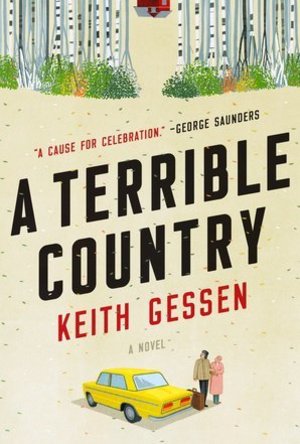ClareR (6086 KP) rated Heatstroke in Books
Dec 27, 2020
Rachel appears to be struggling with the fact that she’s ageing, and she wants to feel both young and attractive to men - and to some extent, boys. She is constantly thinking about what other people think about her: appearances are supremely important, and she can’t understand her daughters need to look older and alter her looks with makeup. Mia is growing up and becoming more independent, and this pushes Rachel further in to despair. Surely if her daughter is older, she is too!
I found it hard to excuse Rachel’s behaviour. She could have made her daughters friend safe quite easily, I think.
I liked the abrupt ending. I rather like it when a book finishes and you can make your own mind up as to what has happened afterwards. Don’t get me wrong - a book that ends with a resolution is just as enjoyable, but you can’t beat an unresolved ending! And i don’t think that this book would have been able to give the quick fix end. It’s clear that there is a lot that needs to be done to make Rachel’s family ‘better’.
I enjoyed this book: as a debut novel, it has certainly given me something to think about, and a name to look out for in the future!
Many thanks to The Pigeonhole for serialising this fabulous book.
Molly J (Cover To Cover Cafe) (106 KP) rated The House By The Cypress Trees in Books
Sep 20, 2019
Julia Ramos and Daniel Stafford are both wonderfully chiseled characters! I loved how Mikalsen created their chance encounter when Daniel nearly ran her over! The attraction between them could be felt as if I was right there standing next to them. Nothing is seeming to go right for either of them while they are in Italy, and it just doesn't seem like the universe is going to help ease their predicaments with all the misunderstandings, the sparks flying and interference from family! But, one night stranded on the side of the road, may be just what they need.
With vivid details of the country side of Italy, and two characters who are from two separate worlds, yet fall into each others paths, and a plot line filled with emotional moments, this is a beautifully written, page turning novel that I highly recommend! Britain, Italy and America collide, quite literally, in this romantic roller coaster ride of a story. It's 4 star worthy, and I look forward to reading it again and again.
*I received a complimentary copy of this book from Author, Publisher and was under no obligation to post a review, positive or negative.*

iPregnant Pregnancy Tracker HD (iPeriod's Pregnancy Companion)
Health & Fitness and Medical
App
Brought to you by the creators of iPeriod®, iPregnant™ is a complete solution for tracking your...

Monitor Your Weight HD
Health & Fitness and Medical
App
iPad version of 'Monitor Your Weight' - the Award Winning Weight Tracker App developed as a tool...

CBS News: Live Breaking News
News and Entertainment
App
CBS News for iPhone, iPad, iPod Touch and Apple TV keeps you informed on breaking news and the...

5000+ Cooking Recipes
Food & Drink and Entertainment
App
5400+ Recipes Cookbook - Browse the cookbook from appetizers to soups, salads to non-veg recipes,...

A Terrible Country
Book
When Andrei Kaplan’s older brother Dima insists that Andrei return to Moscow to care for their...

Higher-Order Growth Curves and Mixture Modeling with Mplus: A Practical Guide
Kandauda A. S. Wickrama, Tae Kyoung Lee, Catherine O'Neal and Frederick O. Lorenz
Book
This practical introduction to second-order and growth mixture models using Mplus introduces simple...

ViewRanger
Health & Fitness and Navigation
App
Discover thousands of inspiring trail guides, download offline topo maps, and navigate with...

Tap Forms Organizer and Secure Database
Business and Productivity
App
+++ This is the legacy version of Tap Forms. Tap Forms Organizer 5 + Secure Database is the new...

